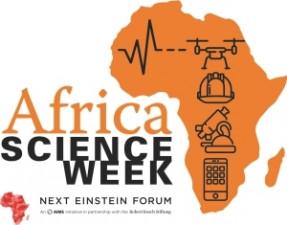
The Next Einstein Forum has launched Africa Science Week to popularise and raise awareness of the impact of science and technology in local communities.
The first Africa Science Week (ASW) was held last week by The Next Einstein Forum (NEF) in Pretoria and Limpopo. It is the first science week held in Africa.
The NEF was introduced in 2013, and was initiated by the African Institute for Mathematical Sciences in partnership with the Robert Bosch Stiftung foundation. Its aim is to connect science, society and policy in Africa, as well as use science for global human development.
An annual event
Africa Science Week (ASW) aims to be an annual four-day celebration of science and technology NEF Ambassadors in countries across Africa. The events aim to involve their local communities, partners and institutions.
"The NEF Africa Science Week is the first coordinated science week across Africa," says Thierry Zomahoun, president and CEO of the African Institute for Mathematical Sciences (AIMS) and NEF chair. "Our activities will also demonstrate the critical impact of science to the general public."
He believes that by bringing together key stakeholders they will build investment in research and development, and start to attract and retain young people in the science industry. Moreover, Zomahoun hopes the event will strengthen research networks and communities of scientists across Africa.
As part of the South African event, which ran from the 26 to 29 June, a panel discussion was held at the University of Pretoria. The topics, all relevant to Africa, included the knowledge economy, trends that are driving economic growth, and growing the pool of scientific talent.
Panelists included NEF ambassador Pelly Malebe, Genetics Professor Bernard Slippers from the University of Pretoria, Dr Chamunorwa Togo from the Innovation Hub, lecturer and head of department of Livestock and Pasture Science Dr Thobela Nkukwana from the University of Fort Hare, and Johnson & Johnson senior director Kirti Narsai.
Youth-driven
In addition, there was a session at the Makgwale High School in Limpopo, where students could learn about chemistry, technology and engineering, as well as participate in science project competitions.
Malebe, who is also a PhD candidate in biotechnology, says that the NEF is youth-driven. "The youth can be encouraged through motivation talks, career guidance and career exposure at basic school level; we should not wait to intervene at university level but rather start at the foundation level."
There is also a large focus on the challenges faced by the local science industry. Malebe points out that although there has been an increase in race and gender inclusivity in the science field, there still needs to be an increase at management level, as the decision-maker remains an "all-boys club".
She emphasises the importance of having an equitable representation of women, and says that in 2016, at the annual NEF Global Gathering 40% of the participants were women, as are 40% of the NEF's fellows and ambassadors.
"The biggest challenges remain funding limitations to carry out great research. Graduates are also faced with the harsh reality of unemployment," adds Malebe.
The South African event was part of a series of African Science Weeks held in 13 other countries. The NEF hopes to expand to 30 countries by next year and all 54 African countries by 2030.
Share